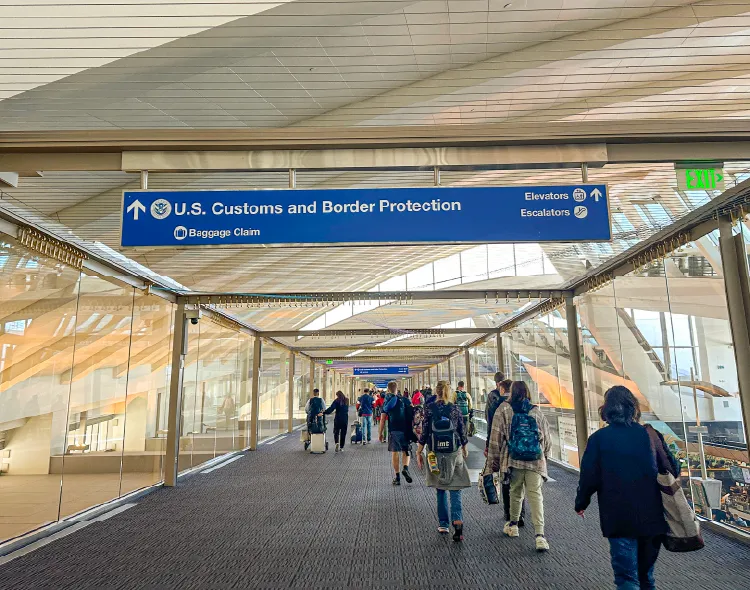10 Exceptions to the Parole Fee Permit Entry Without Payment
On October 15, 2025, U.S. Citizenship and Immigration Services (USCIS) announced that, effective October 16, 2025, the U.S. Department of Homeland Security will begin collecting a $1,000 parole fee from foreign nationals when they are paroled into the United States. The fee will not be collected when an individual applies for a parole grant on Form I-131, but at the U.S. port of entry upon each entry pursuant to a parole grant. If an individual is paroled into the U.S. multiple times, they will have to pay the $1,000 fee at each entry.
There are 10 exceptions to the fee. Most notably, adjustment of status applicants who have been granted advance parole are not subject to the fee. The 10 exceptions are as follows:
- The foreign national has a medical emergency and cannot obtain necessary treatment in the foreign state in which the foreign national is residing; or the medical emergency is life-threatening and there is insufficient time for the foreign national to be admitted to the United States through the normal visa process.
- The foreign national is the parent or legal guardian of a foreign national described in paragraph (1), and the foreign national described in paragraph (1) is a minor.
- The foreign national is needed in the U.S. to donate an organ or other tissue for transplant; and there is insufficient time for the foreign national to be admitted to the U.S. through the normal visa process.
- The foreign national has a close family member in the United States whose death is imminent; and the foreign national could not arrive in the U.S. in time to see such family member alive if the foreign national were to be admitted to the U.S. through the normal visa process.
- The foreign national is seeking to attend the funeral of a close family member; and the foreign national could not arrive in the U.S. in time to attend such funeral if the foreign national were to be admitted to the U.S. through the normal visa process.
- The foreign national is an adopted child who has an urgent medical condition; who is in the legal custody of the petitioner for a final adoption-related visa; and whose medical treatment is required before the expected award of a final adoption-related visa.
- The foreign national is a lawful applicant for adjustment of status under section 245 of the INA (8 U.S.C. 1255) and is returning to the U.S. after temporary travel abroad.
- The foreign national has been returned to a contiguous country pursuant to an expedited removal and is being paroled into the U.S. to allow the foreign national to attend his or her immigration hearing.
- The foreign national has been granted the status of Cuban and Haitian entrant (as defined in section 501(e) of the Refugee Education Assistance Act of 1980 (Public Law 96–422; 8 U.S.C. 1522 note).
- The Secretary of Homeland Security determines that a significant public benefit has resulted or will result from the parole of an foreign national who has assisted or will assist the U.S. government in a law enforcement matter; whose presence is required by the U.S. government in furtherance of such law enforcement matter; and who is inadmissible or does not satisfy the eligibility requirements for admission as a nonimmigrant or for which there is insufficient time for the foreign national to be admitted to the U.S. through the normal visa process.
Additional Assistance
For more information, please contact a member of our Immigration Practice Team or the Phillips Lytle attorney with whom you have a relationship.



